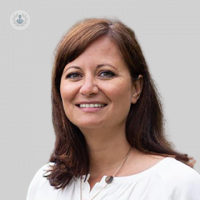A closer look at anxiety
Written in association with:Anxiety is a mental health condition marked by excessive and persistent worry, fear, or apprehension, which can disrupt everyday functioning.
Here, Dr Jessica Valentine, renowned chartered counselling psychologist, offers a comprehensive insight into anxiety.

What are the symptoms of anxiety, and how can I differentiate them from everyday stress?
The manifestations of stress may differ among individuals.
Minor symptoms of anxiety can include heart palpitations, overthinking, frequent crying, making poor choices, sleepless nights, impulsivity, and anger.
More severe symptoms of anxiety can include insomnia, panic attacks, agoraphobia (fear of being in situations where it may be hard to escape), isolation, and substance misuse.
What are common factors or triggers that can contribute to anxiety?
Factors of anxiety can include a genetic predisposition, trauma, abuse, learning difficulties, not being in the right environment, substance misuse, and overthinking.
Can anxiety coexist with other mental health conditions?
Anxiety can coexist with various mental health conditions, such as learning difficulties, depression, and trauma.
Often, a single thought can escalate because of anxiety, causing exasperation, which can lead to sleep disturbances, and then triggering feelings of anger and depression. This pattern can create a vicious cycle.
What are some effective therapeutic approaches or counselling techniques for treating anxiety, such as cognitive behavioural therapy?
Counselling techniques can vary depending on the underlying trigger or cause of anxiety. These techniques can include: CBT (challenging thoughts or core beliefs that hold us back), CFT (compassion-focused therapy), ACT (acceptance and commitment therapy), and mindfulness.
In addition, I believe that exercise and healthy living can also manage anxiety. Holistically, I manage anxiety through activities like swimming, yoga, journaling, talking to trusted colleagues or adults, and practising self care through acupuncture, massage, and beauty treatments.
Are medications also effective for managing anxiety symptoms?
Medication can often be beneficial. However, I prefer to encourage clients/patients to try holistic methods first, viewing it as a potential lifestyle choice.
Nevertheless, when feelings and emotions are too intense and there is a significant risk of self-harm or panic, medication is helpful.
How can I involve my support network (family and friends) in helping me manage my anxiety?
By communicating and educating others about your experience. It’s important to know that not everyone will understand. Sometimes, it may feel that people judge or don’t want to hang out with you if you have anxiety because they don’t understand it. This is why it’s important to explain what is happening to you, especially if you seem distant, if you are in a state of panic, and if you are experiencing psychosomatic symptoms like sweaty palms, a red face, or a fast heartbeat.
If you are living with anxiety, don’t hesitate to reach out to Dr Jessica Valentine via her Top Doctors profile today. She accepts private healthcare, including AXA, AVIVA and Vitality.


